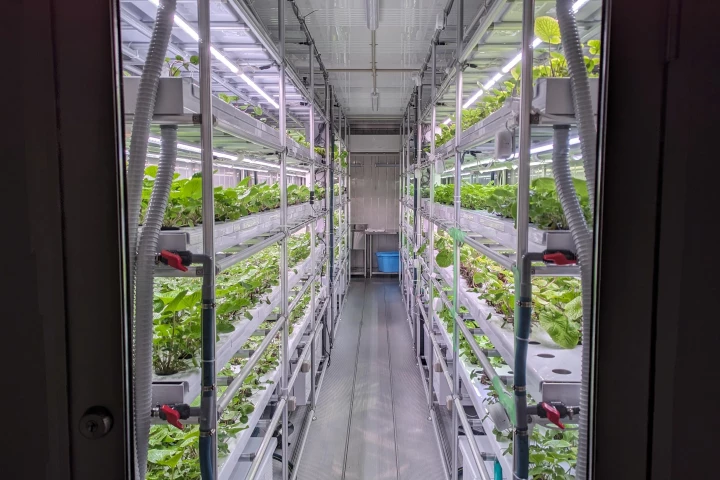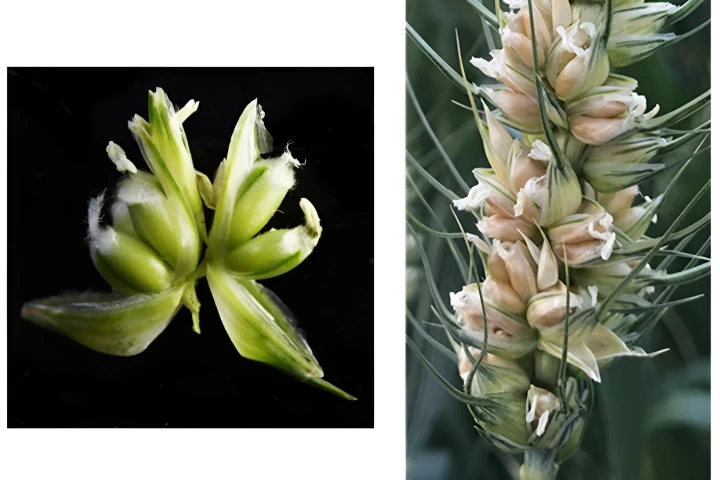Agriculture
-
Kawasaki's Stockman is a purpose-built enduro motorcycle for use in agriculture and livestock farming. A special feature of the bike is its locking mechanism for the clutch lever, which allows the farmer to take their left hand off the handlebars.
-
By adjusting a typical polymer synthesis, researchers have created a spray-on polymer solution that could save billions of tons of crops. It's harmless to plants, and weakens the cell membranes of a variety of harmful bacteria.
-
A new thumb-patch of dissolvable microneedles injects biofertilizer directly into plant leaves. In lab tests, kale and choy sum grew taller and faster with bigger leaves and shoot biomass, using 15% less biofertilizer.
-
Extremophilic Tidestromia oblongifolia alters its own photosynthesis to thrive in heat that would kill most plants. By reorganizing its cells and reshaping its chloroplasts to keep producing energy, is it the future of GMO crops in climate chaos?
-
For nearly a century, a strange band of 5,200 holes carved into a hillside has defied explanation. Stretching for nearly a mile along the edge of the Pisco Valley, Monte Serpe – "serpent mountain" – may have finally revealed its secrets to scientists.
-
In order for farmers to know if their fruit is ripe, they have to pick and analyze pieces of that fruit, reducing their yields. Utilizing a new technique, however, they could soon leave all the fruit intact, analyzing the leaves beside it instead.
-
Japanese agri-tech company Nextage has developed a mobile wasabi growing module that automates cultivation. The device reportedly allows anyone to grow their own crops without the limitations of geography or lack of experience.
-
Inspired by the humble old greenhouse, a futuristic self-contained food ecosystem offers us a glimpse at a how we might one day have "farm to table" on our apartment block rooftops or in space-poor urban areas. Think of it as a tiny house of produce.
-
A radically innovative design controls wheelspin on rough and slippery surfaces while driving all four wheels on all surfaces – and eliminating complex differential gearsets. Its first use will be in off-road heavy machinery.
-
Harsh, eco-unfriendly synthetic herbicides are definitely one of those things that you shouldn't be using if you don't have to. Japanese researchers are thus now developing a green alternative, derived from the leaves of a humble walnut tree.
-
Imagine if three times as much grain could be obtained from the same amount of wheat plants as is currently possible, using the same amount of land, water and fertilizer. Well, that could soon be possible, thanks to a new genetic discovery.
-
Chemical engineers at the University of Sydney are using human-made lightning to produce ammonia – a key ingredient in fertilizers – from thin air and without the need for high temperatures or pressures.
Load More











